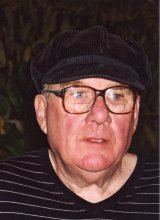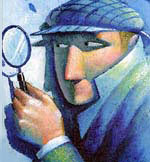Today is January 10th , 2026
FRAUD ALERT
QUEBEC
RECOMMENDATION
Books
|
People of the Lie
EXCERPTS FROM
"PEOPLE OF THE LIE"
by M. Scott Peck MD
Page 69:
"The central defect of 'the evil' is not the sin but the refusal to acknowledge it.
More often than not these people will be looked at as solid citizens.
How can that be?
How can they be evil and not designated as criminals?
The key word is "designated".
They are criminals in that they commit "crimes" against life and liveliness.
But except in rare instances- such as in the case of Hitler when they might achieve extraordinary degrees of political power that remove them from ordinary restraints, their "crimes are so subtle and covert that they cannot clearly be designated as crimes.
The theme of hiding and covertness will occur again and again throughout the rest of this book. It is the basis for the title "People of the Lie"."
Page 70
"Evil deeds do not make an evil person. Otherwise we would all be evil.
If evil people cannot be defined by the illegality of their deeds or the magnitude of their sins, then how are we to define them?
The answer is by the consistency of their sins.
While usually subtle, their destructiveness is remarkably consistent. This is because those who have "crossed over the line" are characterized by their absolute refusal to tolerate the sense of their own sinfulness."
Page 72
"The poor in spirit do not commit evil.
Evil is not committed by people who feel uncertain about their righteousness, who question their own motives, who worry about betraying themselves.
The evil of this world is committed by the spiritual fat cats, by the Pharisee's of our own day, the self-righteous who think they are without sin because they are unwilling to suffer the discomfort of significant self-examination.
It is out of their failure to put themselves on trial that their evil arises. They are, in my experience remarkably greedy people."
Page 73
"A predominant characteristic of the behavior that I call evil is scapegoating. Because in their hearts they consider themselves above reproach, they must lash out at anyone who does reproach them. They sacrifice others to preserve their self-image of perfection."
Page 74
"Since they must deny their own badness, they must perceive others as bad.
They project their own evil onto the world. The evil attack others instead of facing their own failures.
Spiritual growth requires the acknowledgment of one's own need to grow. If we cannot make that acknowledgment, we have no option except to attempt to eradicate the evidence of our imperfection.
Strangely enough, evil people are often destructive because they are attempting to destroy evil. The problem is that they misplace the locus of the evil. Instead of destroying others they should be destroying the sickness within themselves."
Page 75
"Utterly dedicated to preserving their self-image of perfection, they are unceasingly engaged in the effort to maintain the appearance of moral purity.
They are acutely sensitive to social norms and what others might think of them.
They seem to live lives that are above reproach.
The words "image", "appearance" and "outwardly" are crucial to understanding the morality of 'the evil'.
While they lack any motivation to be good, they intensely desire to appear good.
Their goodness is all on a level of pretense. It is in effect a lie. Actually the lie is designed not so much to deceive others as to deceive themselves. We lie only when we are attempting to cover up something we know to be illicit.
At one and the same time 'the evil' are aware of their evil and desperately trying to avoid the awareness. We become evil by attempting to hide from ourselves.
The wickedness of 'the evil' is not committed directly, but indirectly as a part of this cover-up process. Evil originates not in the absence of guilt but in the effort to escape it.
It often happens then that 'the evil' may be recognized by its very disguise. Because they are such experts at disguise, it is seldom possible to pinpoint the maliciousness of 'the evil'. The disguise is usually impenetrable."
Page 77
"They are not pain avoiders or lazy people in general. To the contrary, they are likely to exert themselves more than most in their continuing effort to obtain and maintain an image of respectability. They may willingly, even eagerly, undergo great hardships in their search for status.
It is only one particular pain they cannot tolerate: the pain of their own conscience, the pain of realization of their own sinfulness and imperfection.
The evil are the last people to ever go to a psychotherapist and to deal with their own deficiencies.
The evil hate the light- the light of goodness that shows them up, the light of scrutiny that exposes them, the light of truth that penetrates their deception. "
Page 78
"They are men and women of obviously strong will, determined to have their own way. There is a remarkable power in the manner in which they attempt to control others."
Page 104
"Those who are evil are masters of disguise;
They are not apt to wittingly disclose their true colors - either to others or to themselves.
It is not without reason that the serpent is renowned for his subtlety. We therefore cannot pass judgment on a person for a single act. Instead judgment must be made on the basis of a whole pattern of acts as well as their manner and style."
Page 121
"We are accustomed to feel pity and sympathy for those who are ill, but the emotions that 'the evil' invoke in us are anger and disgust, if not actual hate.
It is the unwillingness to suffer emotional pain that usually lies at the very root of emotional illness.
Those who fully experience depression, doubt, confusion and despair may be infinitely more healthy than those who are generally certain, complacent, and self-satisfied."
Page 124
"Think of the psychic energy required for the continued maintenance of the pretense so characteristic of 'the evil'! They perhaps direct at least as much energy into their devious rationalizations and destructive compensations as the healthies do into loving behavior.
Why? What possesses them, drives them? Basically, it is fear.
They are terrified that the pretense will break down and they will be exposed to the world and to themselves.
They are continually frightened that they will come face to face with their own evil.
Of all emotions, fear is the most painful. Regardless of how well they attempt to appear calm and collected in their daily dealings, 'the evil' live their lives in fear."
Page 129
"Evil people would be distinguished by these traits:
a) Consistent destructive, scapegoating behavior, which may often be quite subtle;
b) Excessive, albeit usually covert, intolerance to criticism and other forms of narcissistic injury;
c) Pronounced concern with a public image and self-image of respectability, contributing to a stability of lifestyle but also to pretentiousness and denial of hateful feelings or vengeful motives;
d) intellectual deviousness, with an increased likelihood of a mild schizophrenic like disturbance of thinking at times of stress."
Page 130
"But there is another vital reason to correctly name evil: the healing of its victims. The fact of the matter is that evil is one of the most difficult things to cope with."
Page 255
"How are we to take Christ's admonition to " judge not lest you be judged" and still label someone as evil? If you see something wrong don't you try to correct it? Was Hitler OK? Was Jim Jones OK? Were the medical experiments on Jews OK?
There is such a thing as an excess of sympathy, an excess of tolerance, an excess of permissiveness.
The fact of the matter is that we cannot lead decent lives without making judgments; general and moral judgments in particular.
Christ did not enjoin us to refrain from ever judging.
What Jesus went on to say in the next four verses is that we should judge ourselves before we judge others, not that we should not judge at all. We are to purify ourselves before judging others.
This is where 'the evil' fail.
It is the self-criticism they avoid."
|
Paul H.Cody

ACCOUNTABILITY
RESOURCES
LEGAL ABUSE SYNDROME
|



